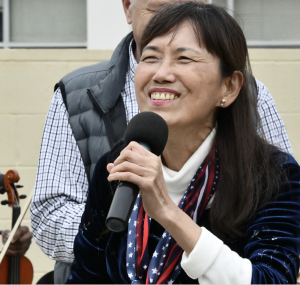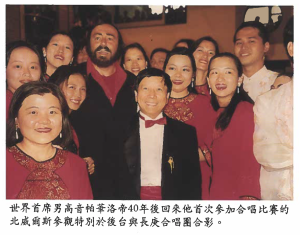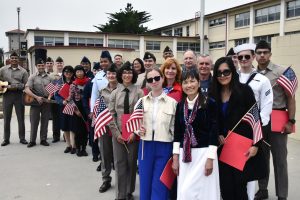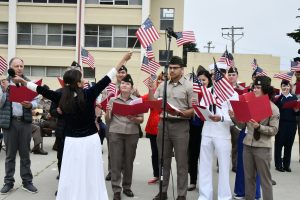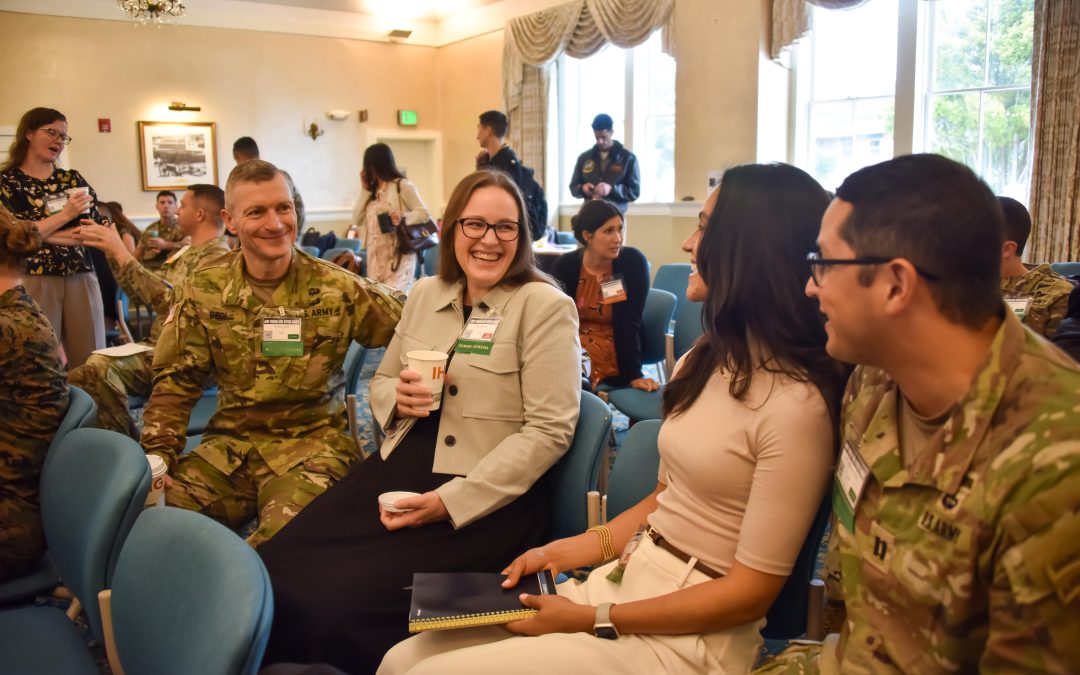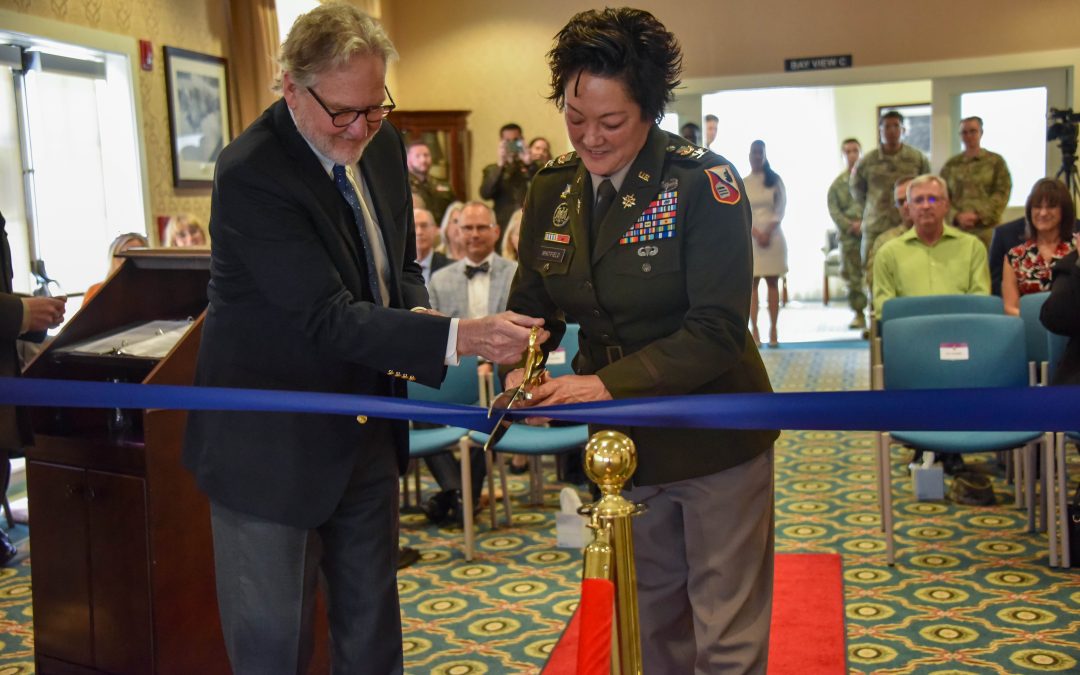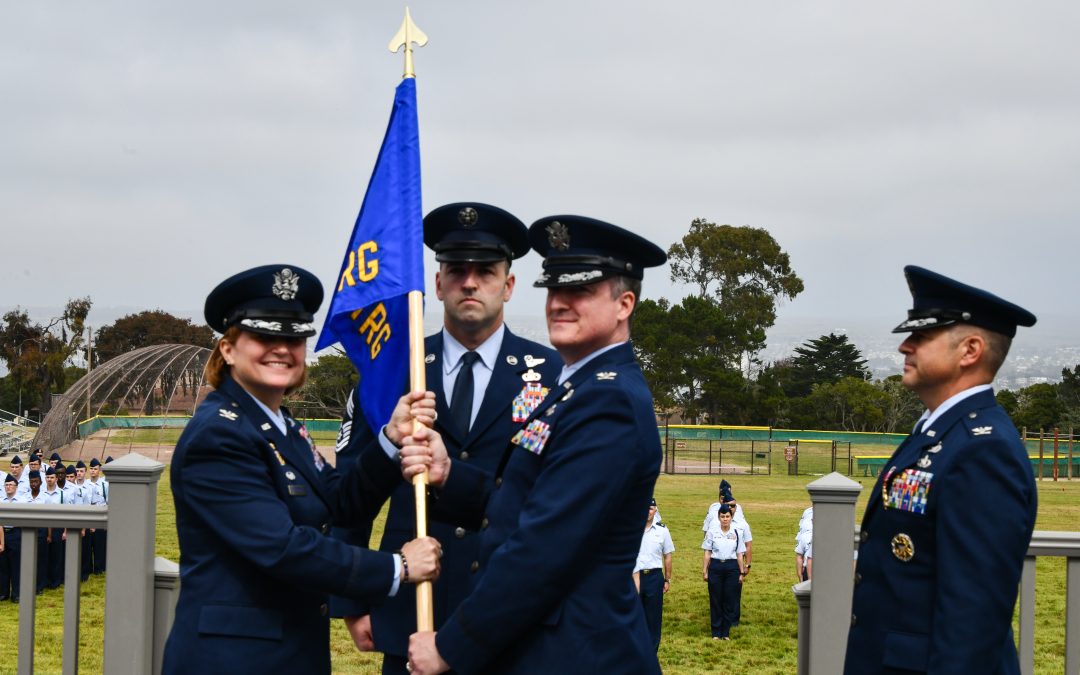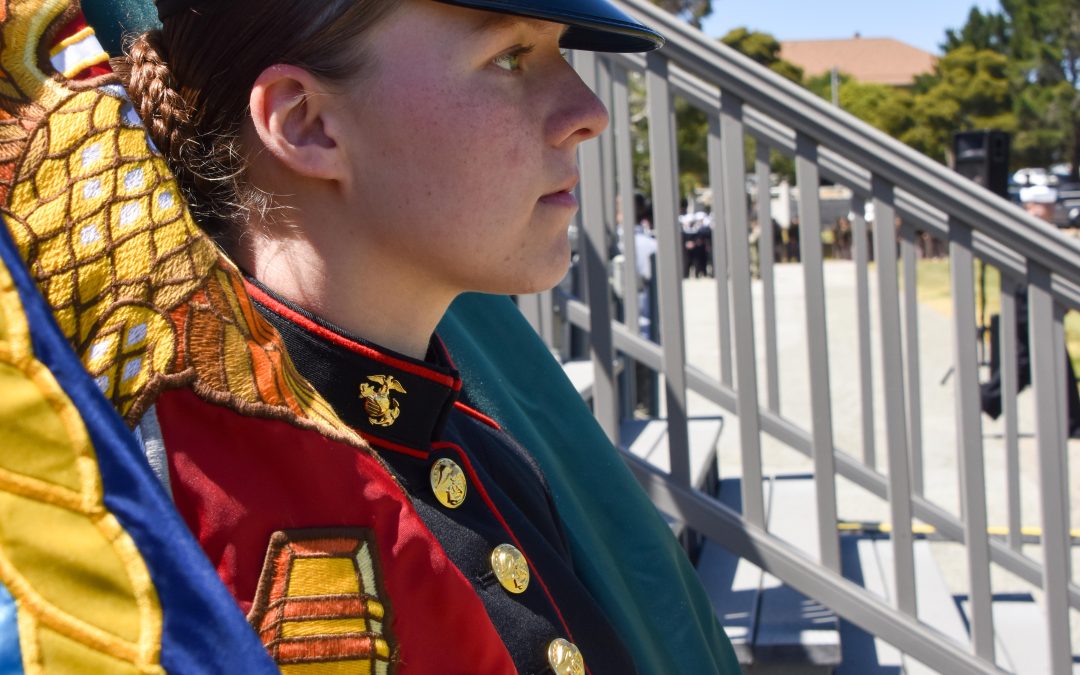Language isn’t just a way to communicate, it’s a component of individual culture that makes it special, unique.
One renowned instructor’s linguistic journey is marked by her passion, dedication and a lifelong pursuit of utilizing music to teach language. This has made her process truly unique and special.
“Language is music,” smiled Dr. Huichu “Amber” Hsu, a Chinese language instructor at the Defense Language Institute Foreign Language Center. Though a language instructor by profession, Hsu has dedicated her life to the art of choral conducting and song and how those two skills translate into language learning.
From an early age, Hsu was instantly recognized as a musically gifted child and though she had no formal training, began singing in the Ping Tung choir of South Taiwan at the age of six.
“My professor, Professor Kao Chu-Hsiang, was the first female professor [from Taiwan] to receive a master’s degree [from] the United States in music,” Hsu said.
Chu-Hsiang helped to inspire Hsu and laid the foundation for her musical expedition. “She brought back a lot of American folk songs,” she gleefully reminisced. “Those songs, like Simon & Garfunkel, John Denver and The Carpenters helped me to learn English.”
With her talents growing quickly, Hsu won a championship by singing trio in a regional competition in the south of Taiwan by the time she was 11 years old. She was also a two-time solo county champion in junior high and senior high school, respectively.
However, it was her fateful meeting with choral conductor Tien-Hui “Tom” Hsu when her musical path would begin to take shape.
They met in the Taiwan Kaohsiung Teachers Choir. He had just returned from San Francisco where he obtained his master’s degree in music, focusing on choral conducting at San Francisco State University. Little did she know upon their meeting that Tom would become her husband of 34 years.
“Tom became the first choral conductor of the National Taiwan University, the most prestigious university in all of Taiwan, for almost six years,” Hsu said.
Her husband’s expertise paved the way for Hsu to join his professional choir, despite being the only non-music major in the entire troupe. He recognized that her passion and musical background made her an invaluable addition to the ensemble.
“His soul and sense of interpretation of music was so beautiful. He was also a very talented tenor, so he could judge the quality of the singing voice,” she said.
In 2007, after her husband’s retirement as a college music professor in Taiwan, Hsu and her family embarked on a new chapter in the United States.
She pursued a Ph.D. in teaching English as a second language, focusing on incorporating rhythmic music language into the classroom. Despite her academic pursuits, music remained an integral part of her life, and she began developing her curriculum to incorporate music as a learning tool, the same way she had learned English as a girl.
Though faced with numerous challenges throughout her musical journey, Hsu continued to participate in world competitions, honing her skills as a singer and conductor, but always focusing on her study of language.
The choir’s exceptional performances caught the attention the world.
“As part of the Chan Gung Chamber Choir, we won the championship in 1991 at the Llangollen International Musical Eisteddfod in North Wales,” she explained. “This is the first time a choir from the Far East ever won the top trophy during that international competition’s 47-year history.”
After obtaining this stunning accolade, Taiwanese President Lee Deng-Hui received all the members of CGCC in the presidential office in Taipei, Taiwan, in September 1991, to celebrate their magnificent achievement.
For over a decade, Hsu traveled extensively across Europe, competing in Greece, France, Germany, Italy and England. During this time, she and her husband had the honor of meeting legendary tenor Luciano Pavarotti at the Rossini Choir of Italy in 1995.
“Pavorotti and his father, Fernando, had joined the Rossini Choir of Italy in Llangollen in 1955 and won the international championship when Pavarotti was 21 years old,” Hsu explained. “Now at 60, Pavarotti and his father, over 80, were invited and performed a duet at the same [event] 40 years later,” she gushed. “After their performance, [Luciano] received CGCC and took a group photo to honor the CGCC’s outstanding performance.”
Coupled with her dedication to musical excellence and her husband’s guidance, they secured six gold medals in various international competitions.
With immense amounts of practice and determination, it was Hsu’s own ability to transform complex music by using a movable scale method that allowed her to sing with exceptional accuracy. This innovative approach enabled her to surpass the expectations of many music majors and achieve remarkable success.
Hsu attributes her accomplishments to several key factors; her choir’s pure voices, accurate pitch, precise rhythm, and beautiful interpretations.
Throughout her journey, Hsu embraced the challenges and found joy in sharing her love for music with her students, even focusing that love into her doctoral thesis on teaching methodologies.
“I also did the research for my dissertation on how applying songs to language [translates to] teaching in the classroom,” she explained. “My passion motivates me to be happy and that, in turn, motivates my students.”
As a conductor and educator, Hsu urged her students to reach their full potential through joy and song. By merging the worlds of language and music, Hsu has repeatedly demonstrated the power of communication and the transformative impact of harmonious melodies on language education.
Language education is exactly why Hsu has organized a school choir for the combined Chinese/Russian school.
“When we talk about language, we talk about mathematics as music. But language is also music, which is the same science of communication,” said Hsu who has motivated her students into learning about how song, not just language, can change one’s absorption of knowledge.
“The Chinese language has four tones,” she explained. “Four tones, with four different pronunciations, which have four different meanings. How we use pitch to match [that specific tone] is from music.”
A word in Chinese, like “ma” has multiple meanings based on the tone in which it is spoken. Ma is mother. Ma is a favorite. Ma is a horse. Ma is to blame somebody. But with a different tone, even with the same pronunciation, it will have different meaning.
“Chinese is pitch,” explains Hsu. “Chinese language pitch is from music.”
Using commonplace melodies, Hsu has created educational lyrics to teach vocabulary. Using everything from Christmas jingles to Halloween frights that most students will know from their childhood, she selects a song that allows the lyrical rhyme to use all the vocabulary from a specific lesson.
“And it translates into all languages,” she explains, holding a lyric sheet of Richard Rodger’s classic “Edelweiss” in her hands.
Russian students learned the song “Edelweiss,” as did Chinese students, but in their respective languages. Then they sang it together, taking turns, performing a solo in each language.
The result? A remarkable infusion of language in a lyrical mashup of harmonious melodies that blend perfectly together.
In a world where music transcends boundaries and touches the deepest parts of our souls, Hsu has tapped into a part of herself and shared that spark with her students, helping to brighten up not only their futures, but their smiles as well.

